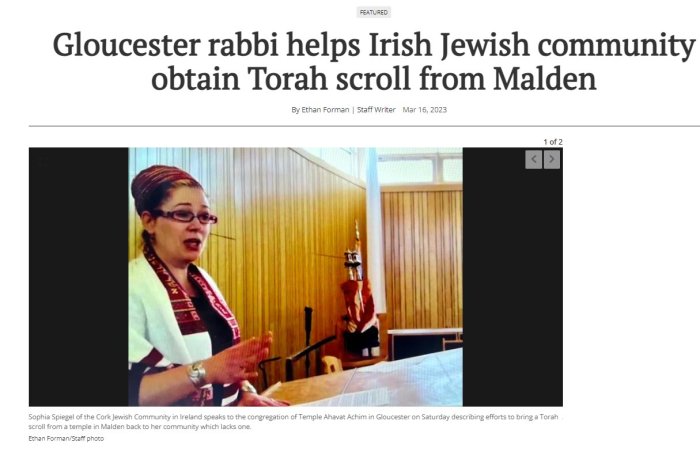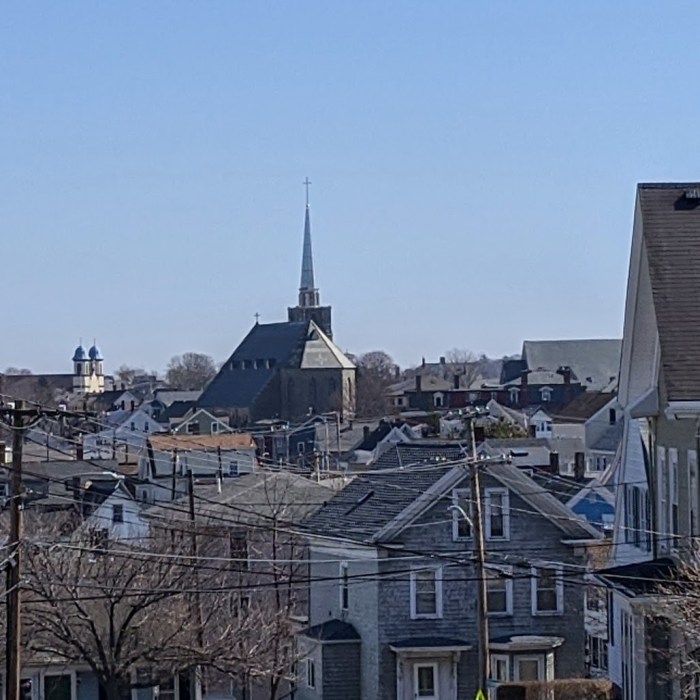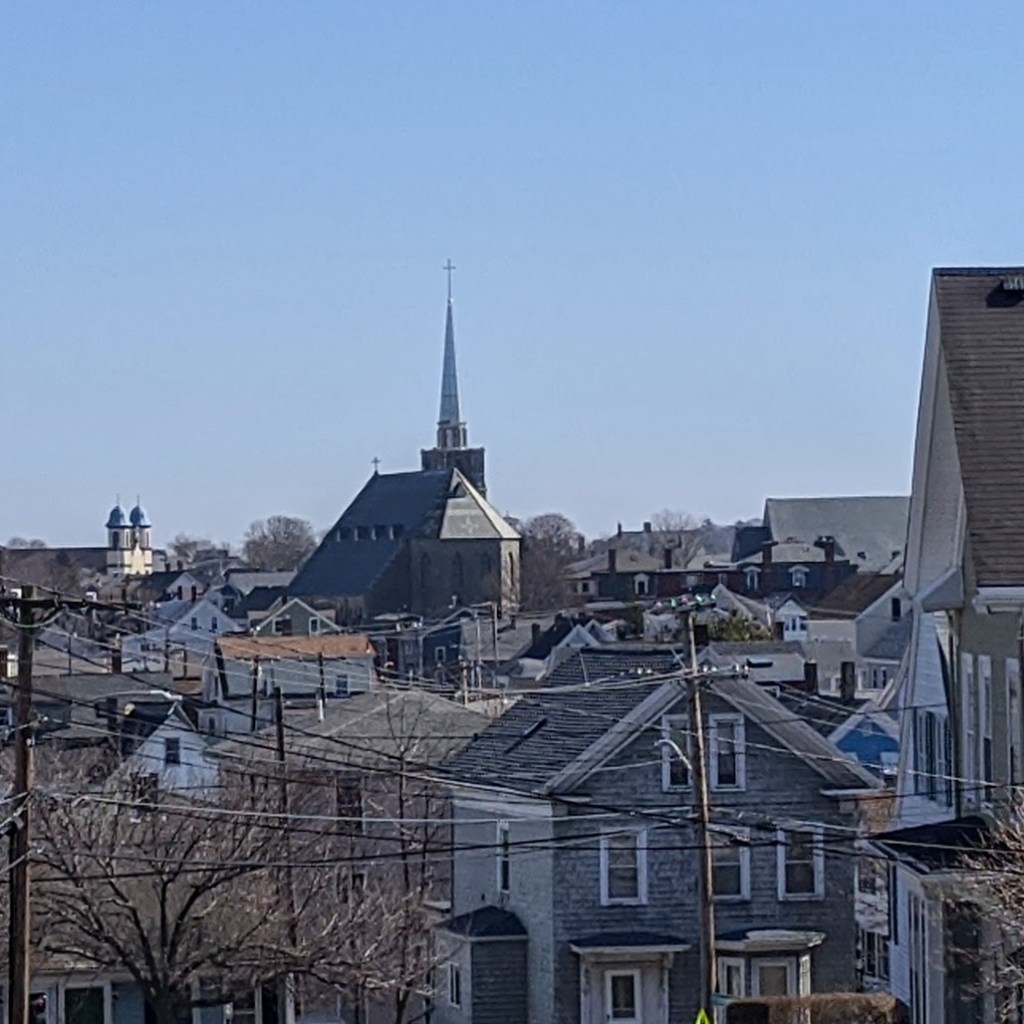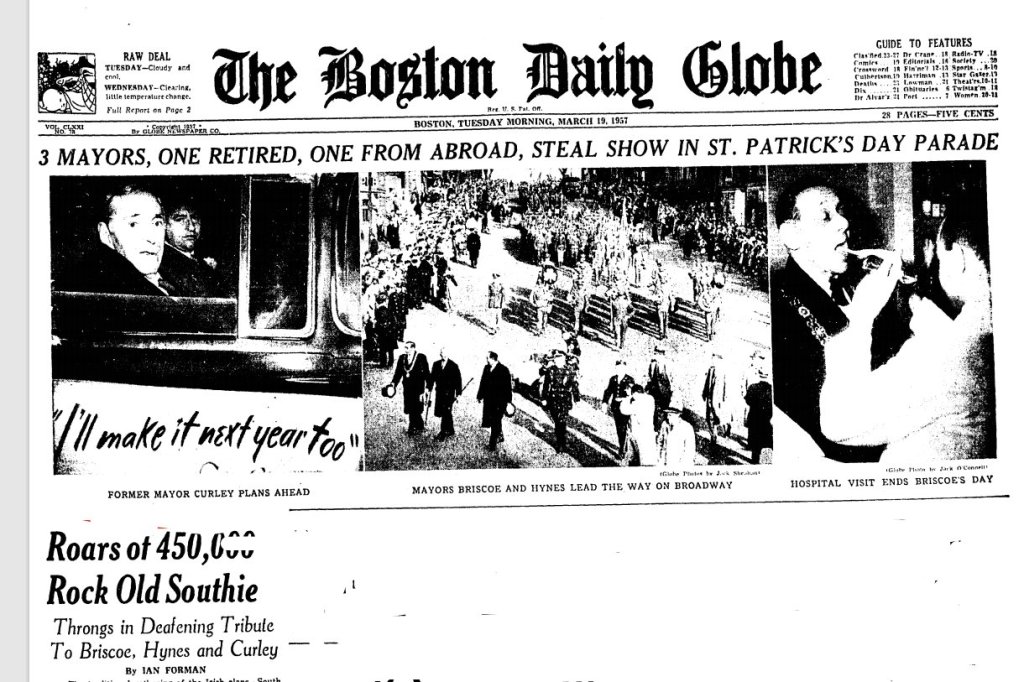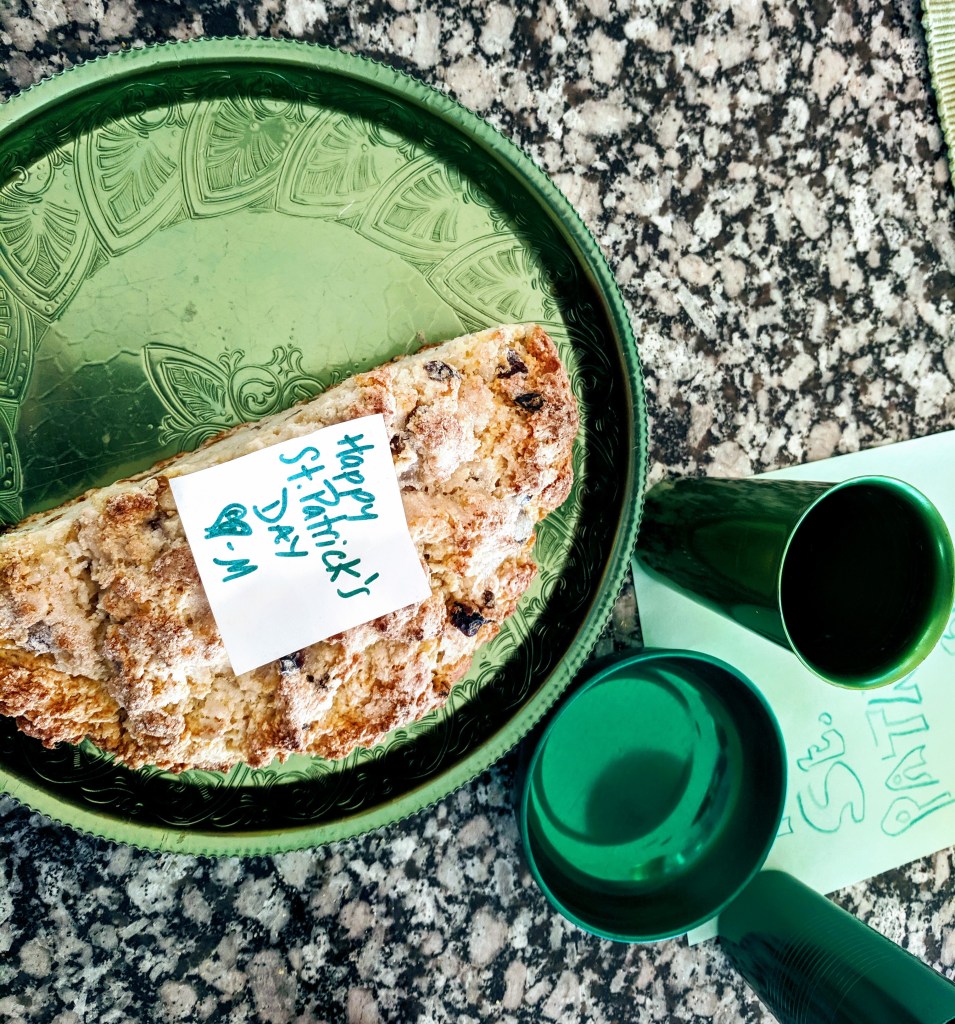What music are you listening to on St. Patrick’s Day?
While I was mulling a great story by Ethan Forman in the Gloucester Daily Times about our community, a Torah scroll and Jewish life in Ireland, a Clancy Brothers album was playing in the background, a St. Patrick’s Day ritual ever since I was a child. I sang along instinctually and smiled even more at the poetry and word play of Torah and Too ra loo ra when that track came on.
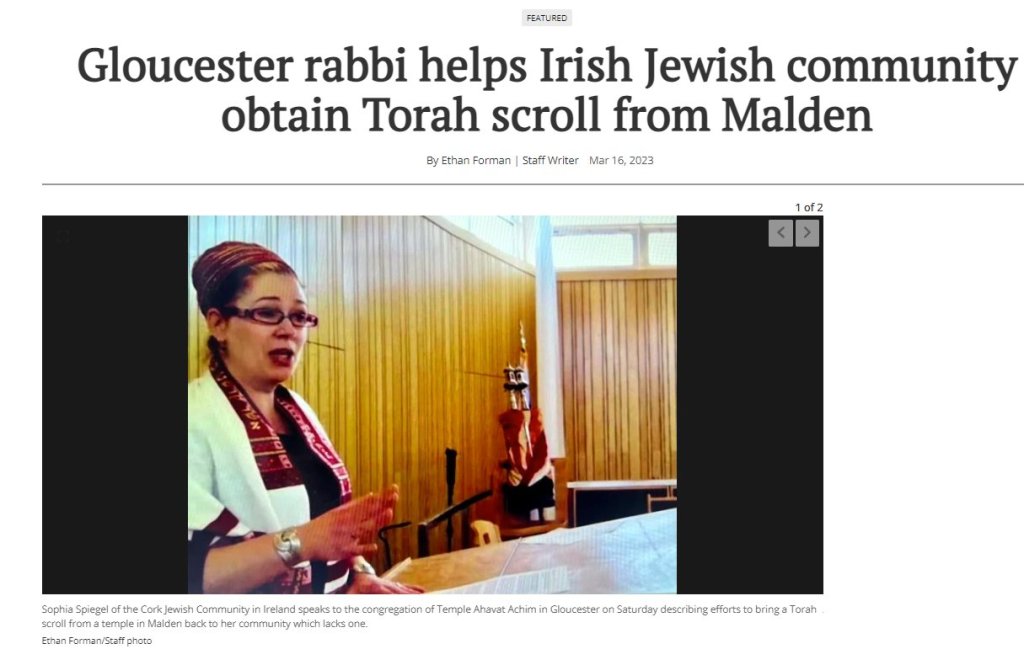
“Rabbi David Kudan, the new interim rabbi at Temple Ahavat Achim on Middle Street, was instrumental in helping a small but growing Jewish community he is close to in the port city of Cork, Ireland obtain a sacred Torah scroll from his former congregation in Malden.
“They have graciously decided to bequeath this sacred scroll to help to renew Jewish life in the south of Ireland,” Kudan said during services in Gloucester on Saturday.”
Ethan Forman. “Gloucester rabbi helps Irish Jewish community obtain Torah scroll from Malden.” Gloucester Daily Times, March 16, 2023.
Here’s the Clancy Brothers intro before playing Moses Ri-Toora(h)l-I-Ay Live at Carnegie Hall 1963
“There was a friendly son of St. Patrick by the name of Robert Briscoe who became Lord Mayor of Dublin, twice. He was a great Irish rebel as a matter of fact, a great Jewish Irish rebel, which gives us an excuse to sing a song that is the only Irish Jewish rebel song in captivity. And for those of you who don’t know, it needs a bit of explaining, it’s sort of old. At one time, the Irish language, Gaelic–at least it’s called Gaelic everywhere else–but in Ireland naturally enough it’s called “Irish”. This language is forbidden by British law, and this song was written to ridicule that situation. It’s about a Jewish merchant who came to Ireland and went to a small country town where he opened up a store and over his store he put his name in Hebrew. Now this very ambitious British policeman came along, took one look at the Hebrew and assumed it was Gaelic and dragged the Jew into court. And the song is concerned with the trial of the Jew. The song wasn’t written so much to show the great love between the Irish and the Jews so much as it twas to show the stupidity of the British…”
Clancy Brothers and Tommy Makem concert Live at Carnegie Hall 1963 Intro 4 – Moses Ri-Tooral-I-Ay
Although laws banning Welsh and Irish languages were lifted, and Welsh permissible in Wales courts, it’s English solely for courts in Northern Ireland to this day.
One of seven children of Lithuanian-Jewish immigrants who came to Ireland to escape persecution, Robert Briscoe (1894-1969) studied electrical engineering in Germany, opened and shuttered a Christmas lights manufactory in NY ahead of US engagement in WWI, was active in Sinn Féin and IRA under Michael Collins before Ireland’s War of Independence, served in the Irish parliament (from 1927-1965), raised money to help Jewish immigrants escape Nazism (sadly failed to make that happen in Ireland, including some 100+ he was related to), and was the first Jewish Lord Mayor in Dublin–a title equivalent to Gloucester’s President of the City Council–which made international news. His cross country advocacy tours in the United States drew hundreds of thousands in New York, Boston and Chicago. One time, parade organizers moved the day of the parade out of respect for Briscoe’s faith.
“Briscoe’s twinkling eye, his wit and his pride in Ireland and Judaism captured the hearts of his countrymen. His 1950 election as Lord Mayor of this heavily Catholic city raised no eyebrows here but introduced Briscoe to a world in which he championed his beloved Ireland.”– 1969 obit
Roars of 450,000 Rock Old Southie Boston Globe, 1957, by Ian Forman. You can read the article here on GMG which I posted in 2021. Gloucester residents participated in the parade.
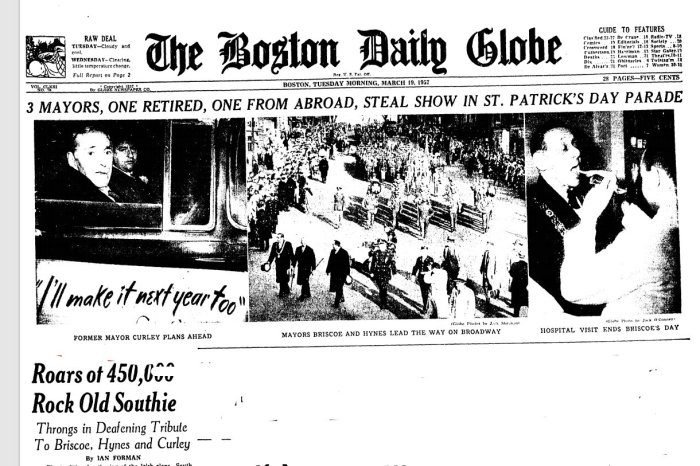
Here is how Briscoe described the parade in Boston:
Robert Briscoe, For the Life of Me, 1958 page 325
“…Four miles it was, and by the end of it I was shuffling my feet like an elephant with corns. Incidentally, I clean wore out my best shoes and had to buy a new pair next day, which news being cabled back to Dublin made people there say, “A fine salesman for Ireland this Briscoe fellow! The first thing he does is to buy American shoes.” One of the newspapers in Boston; greeted me with a great green headline saying “AARON GO BRAGH” in both English and Yiddish characters. The supposedly proper Bostonians gave me such a welcome as almost made me weep. There I made thirty- six speeches in thirty-six hours, and lost my voice. Between speeches they had to keep rushing me to the hospital to have my throat sprayed…”
Briscoe boasted in his autobiography that he codified a law regulating loan fees and that it made certain that women couldn’t borrow money without letting their husbands know. Because, you know. Women. A lot to unpack:
“…It may seem odd to those whose ideas of the business methods of our race are formed by the unfortunate Merchant of Venice, but the people my father abhorred most of all were unscrupulous moneylenders. The first time I came back from America, cutting a rather dashing figure in my New York clothes, I began going out with a certain very beautiful Jewish girl. When my father learned of it he called me to his room, and said, “I hear you are keeping company with Esther. You know her father is a moneylender and I am sure you know how much I love you. Now I solemnly tell you this, rather than see you married to a moneylender’s daughter, I would prefer to see your right arm cut off at the shoulder.” Mother shared this feeling of his. One time a moneylender died who had never paid his subscription to the Jewish cemetery of which Pappa was a trustee. His relatives, who were forced to pay a large capital sum to get him buried there, came to Pappa to complain. Mother hearing the argument, said to them, “Those good Jews who lie in the cemetery will rise when the Messiah comes. But your uncle will be there forever. He’s getting a bargain.” I was so impressed by Pappa’s abhorrence of moneylenders that when I first went into the Dáil, I joined with Patrick J. Little to introduce a bill which would put an end to their worst abuses. They often juggled loans so that they received as much as a thousand per cent interest, and once in their clutches a man had as little chance of escaping as a rabbit in a boa constrictor’s jaws. My bill regulated the interest that could be charged and also made it illegal for a married woman to borrow money without the knowledge and consent of her husband, for these foolish ones are always the easiest prey of the moneylenders. The act was passed and is today the law of Ireland.”
Robert Briscoe autobiography, For The Life of Me, 1958, page 16
I haven’t researched how that law evolved if at all since.
Jumping back to 2023, Ethan Forman wrote that a dynamic leader from Cork, Sophie Spiegel, carried the Torah scroll from Massachusetts to Ireland this month.
